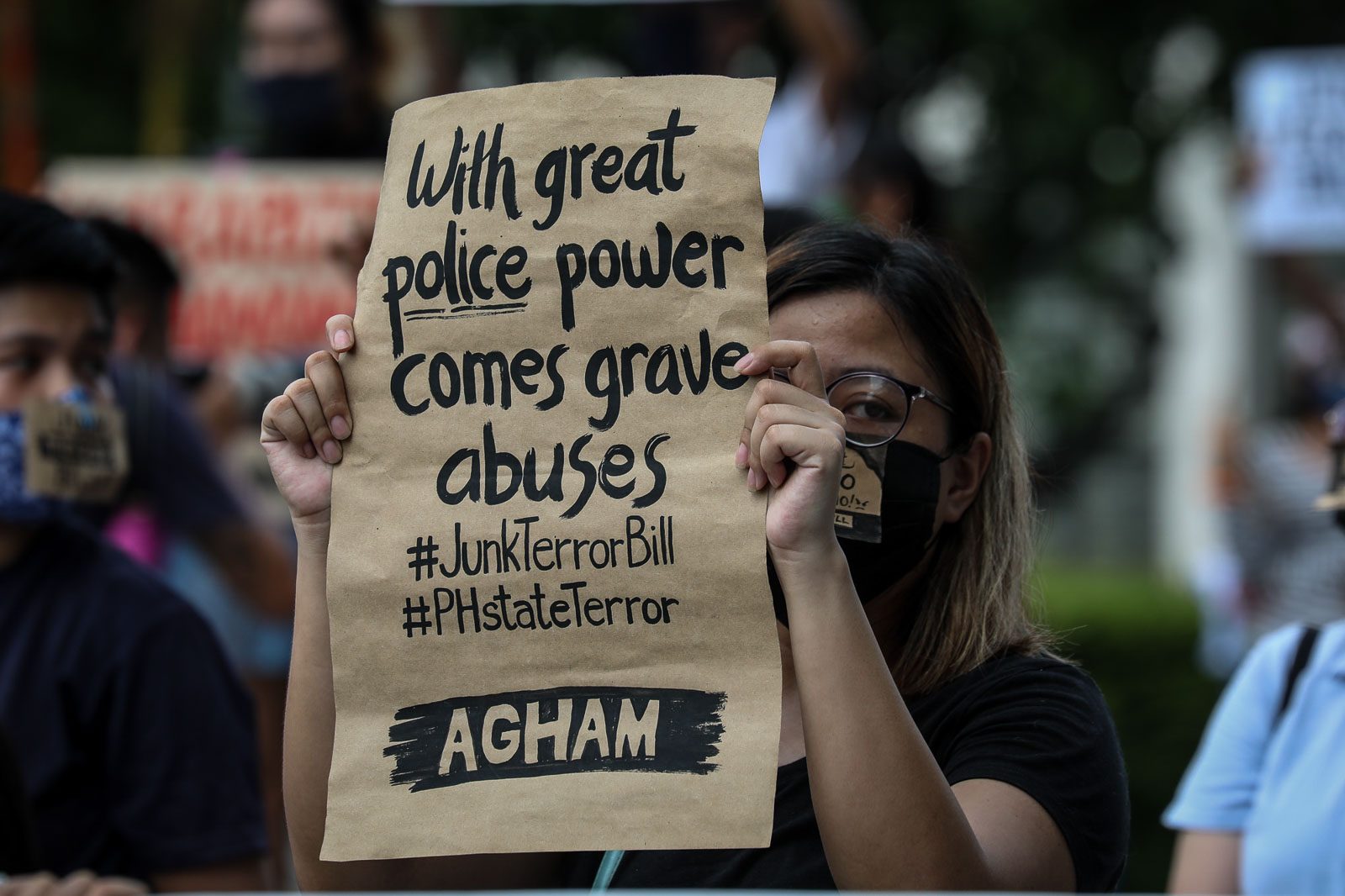SUMMARY
This is AI generated summarization, which may have errors. For context, always refer to the full article.

MANILA, Philippines – The Philippine Supreme Court has mostly upheld the heavily contested anti-terror law, including the 24-day detention power, heightening fears of a more intense crackdown on dissenters.
Only partially granting the petitions, the Supreme Court declared only two parts unconstitutional, part of the so-called killer caveat under Section 4(e) and the second mode of designation under Section 25.
The Supreme Court declared unconstitutional the so-called killer caveat of the anti-terror law which would have made dissent or protest a crime if it had an intent to cause harm.
“On the basis of the current petitions, all the other challenged provisions of R.A. 11479 are not unconstitutional. The main ponencia and the various opinions contain interpretations of some of the provisions declared in these cases as not unconstitutional,” the Supreme Court Public Information Office (PIO) said in a short advisory Thursday, December 9.
A full copy of the decision is yet to be released.
With only two things declared unconstitutional, it upheld Section 29 which gave the executive anti-terror council the power to order the arrest of suspected terrorists and detain them for as long as 24 days.
Petitioners contested this because in the Revised Penal Code, the maximum detention of a person arrested without warrant is only 36 hours, and under the Constitution, three days if under a state of martial law.
During oral arguments, government lawyers admitted the council may order a prolonged detention of a suspect even if the said suspect was not arrested for terrorism, but was caught with someone who had been designated as a terrorist.
The crime of inciting to terrorism is also validated, heightening anxieties of activists and journalists that their words, or mere reporting, could land them in jail.
Petitioners and their lawyers said that while sriking down the killer caveat eased fears, it remains to be a dangerous law. Rights groups said the law still has “deadly consequences.”
President Rodrigo Duterte and his allies in Congress rushed to pass this law during the pandemic in 2020. The Philippines joins Southeast Asian neighbors Hong Kong, Thailand, and Singapore to have legislation widely seen as a crackdown on dissent, as democracies are threatened around the world.
Two Aetas were the first to be charged under this law, but they were freed by a local court in Zambales last July, ruling that they were a case of mistaken identity.

– Rappler.com
Add a comment
How does this make you feel?





There are no comments yet. Add your comment to start the conversation.